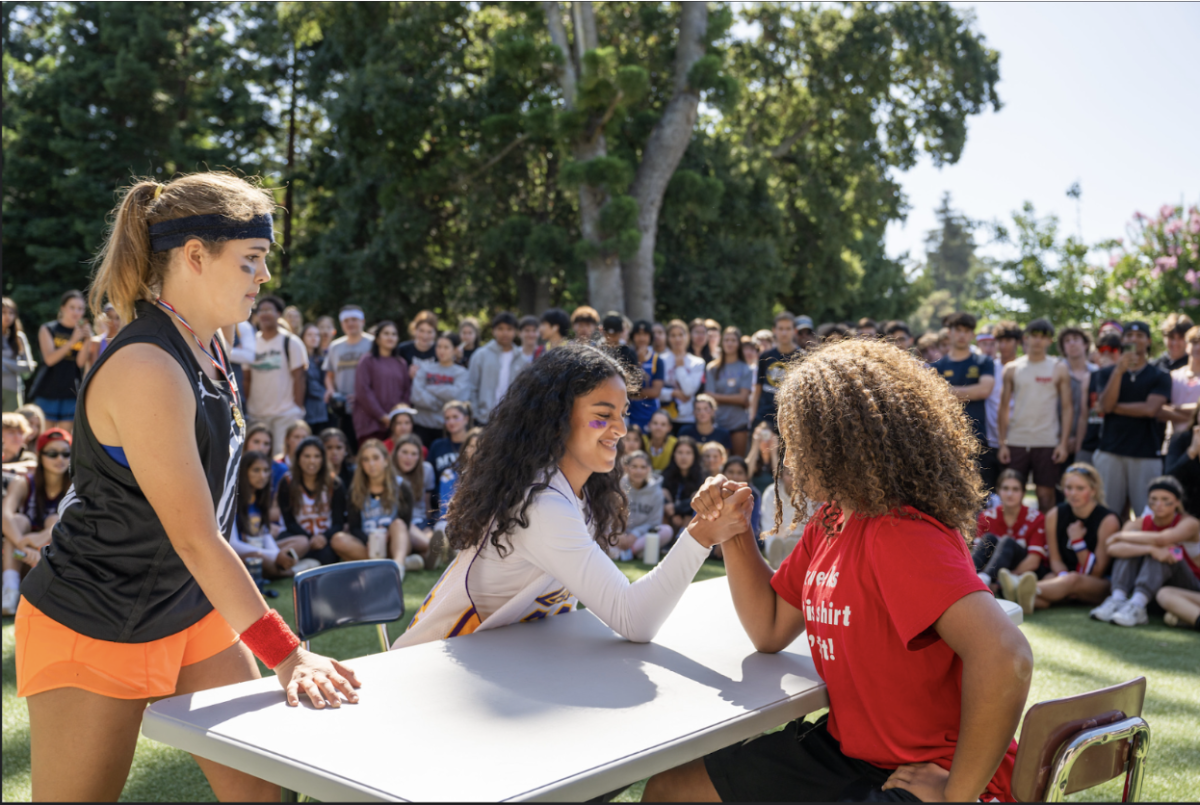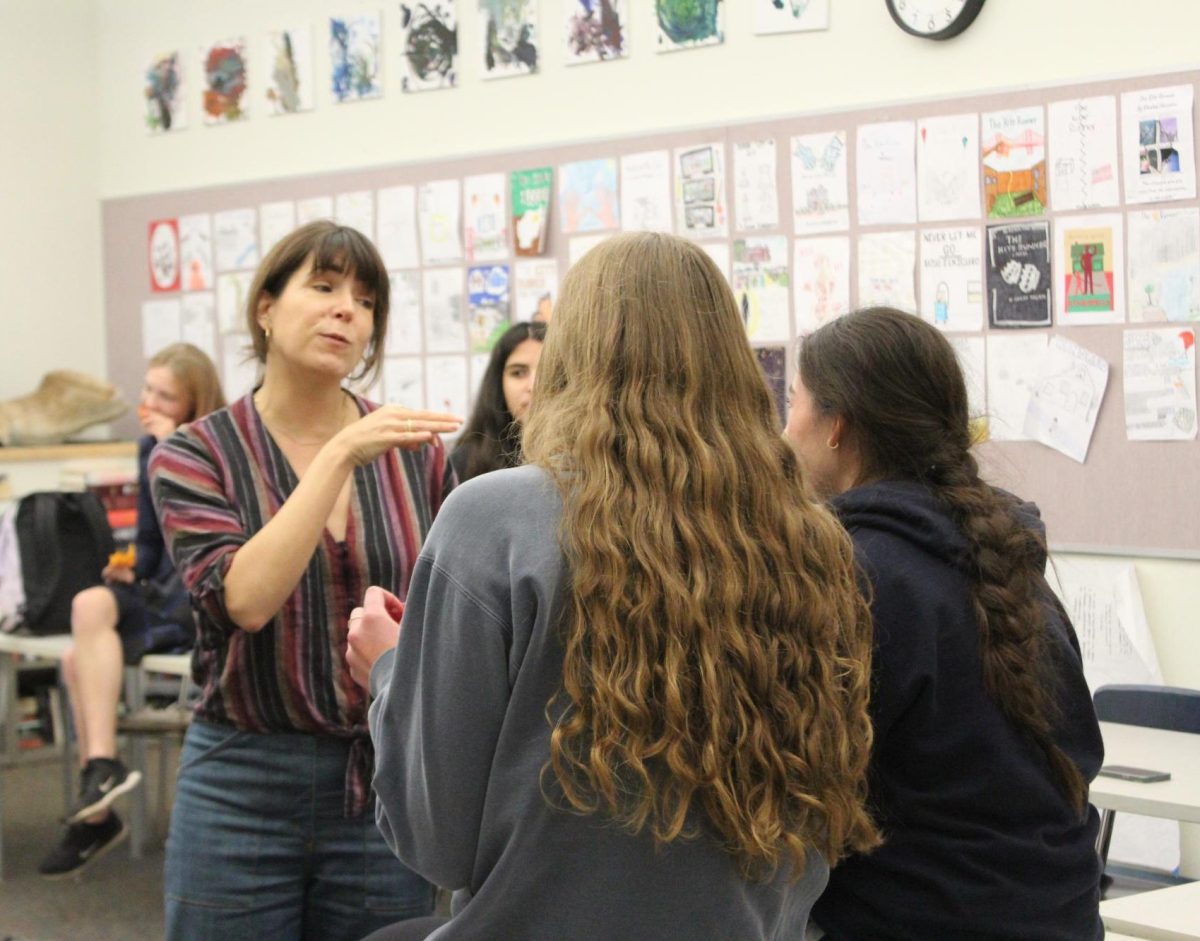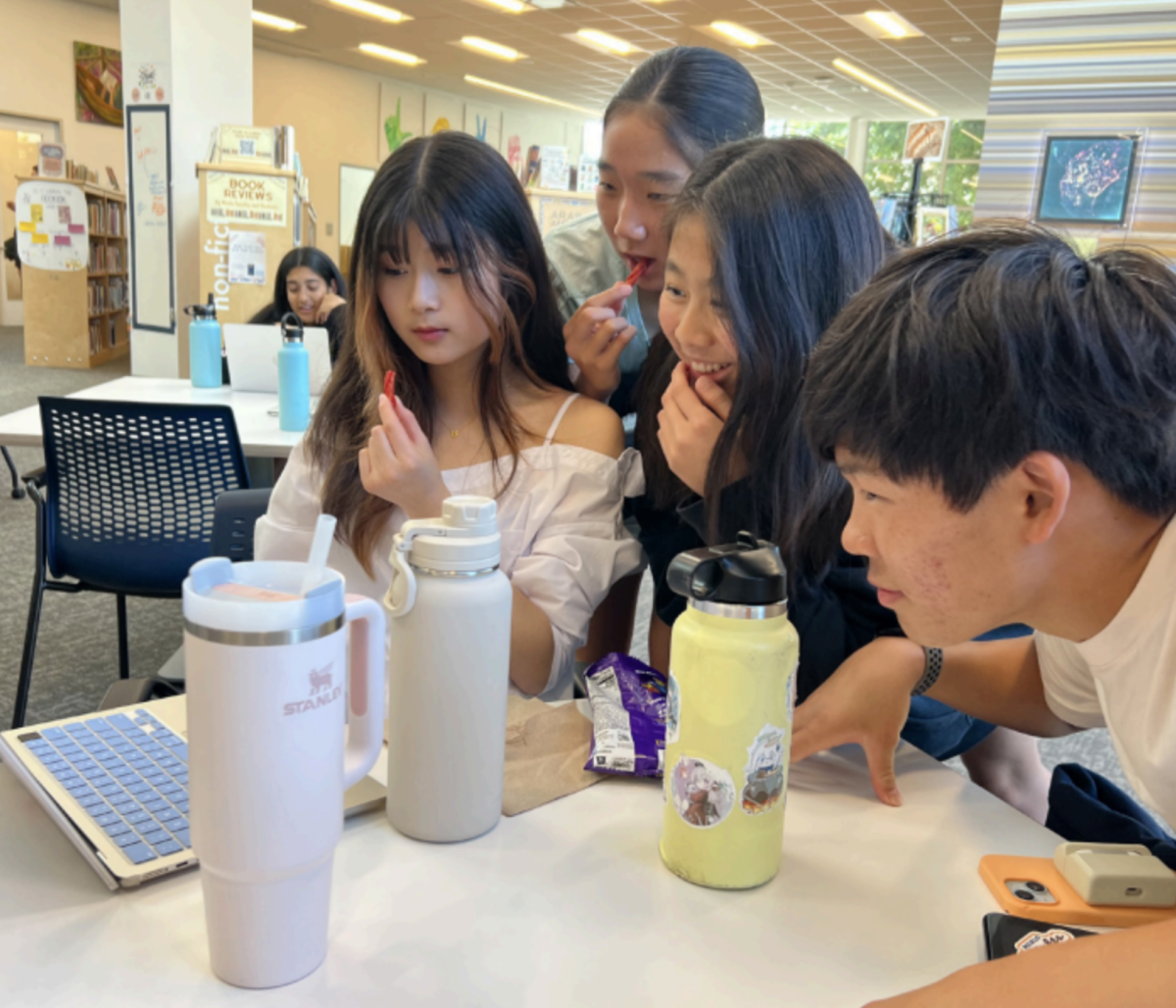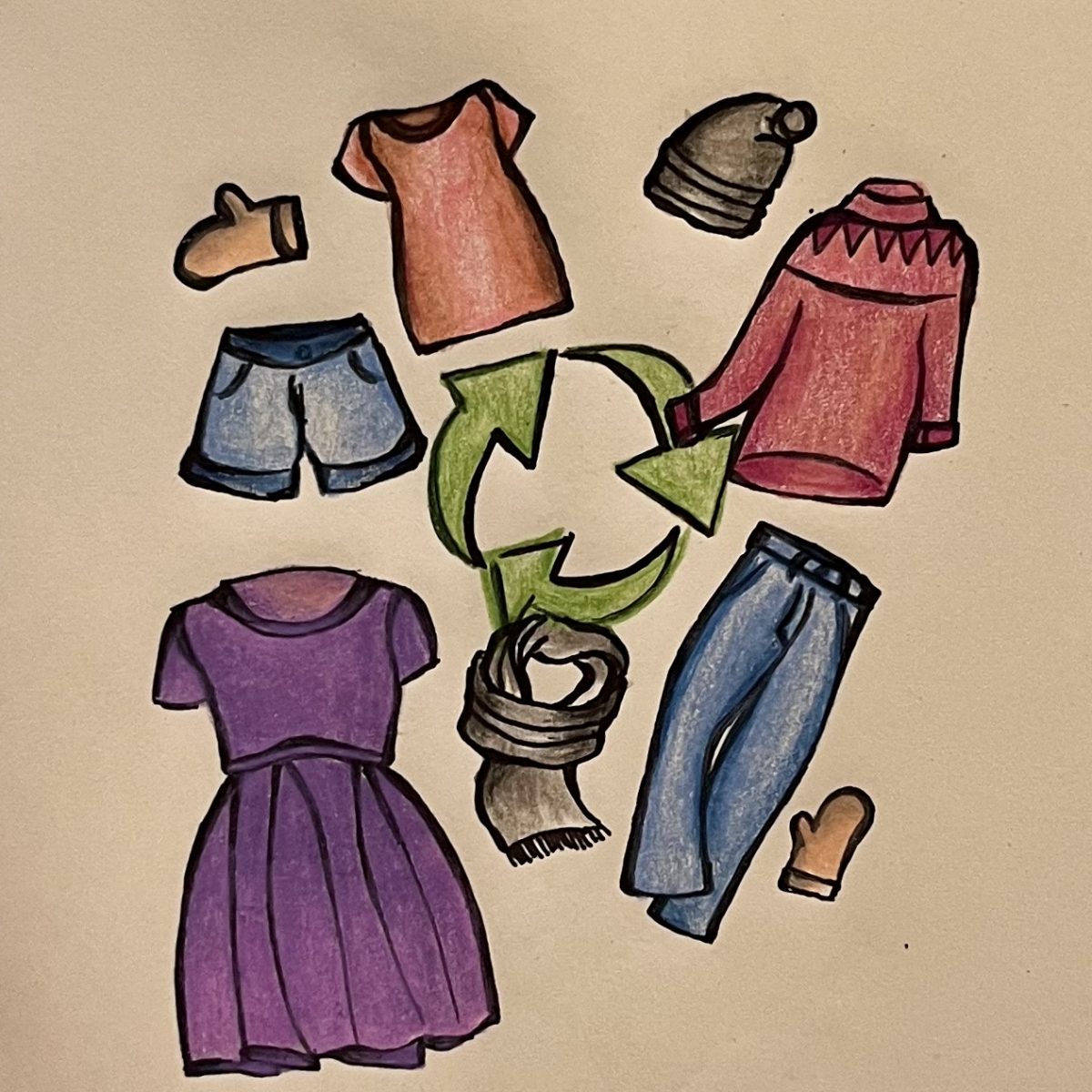Have you ever noticed that many Menlo traditions give seniors superiority over other classes when it comes to the aesthetics of t-shirt designs, spirit outfits, or results of games? Menlo administrators and teachers allow seniors to get away with more. Although I personally wouldn’t call this behavior “hazing,” the fact that it sets certain grades from one another serves a similar result as hazing: it weakens relationships between grades. This is a significant problem that flagrantly conflicts with Menlo’s mission and values. However, the more I look around, the more I’m concerned that many of our longstanding Menlo traditions emphasize power dynamics instead of support and connection. I also wonder about how many of us students are simply oblivious to these power dynamics. Within teams and on the first day of school, seniors choose outfits that are intentionally unattractive for freshmen to wear, leading to feelings of awkwardness and insecurity within the ninth graders that discourage them from putting themselves out there and forming new friendships. In addition, during activities such as spirit games or whole-school competitions, upperclassmen are pitted against younger grades, which may lead to more grade separation and animosity over who wins or loses.
Although I understand that the seniors mean this with no ill-intent, I still feel like we need to contribute more to bring different grades together. We need to invest in more traditions such as spirit activities, classes, and practices that emphasize equality and leadership instead of our differences and superiority. I firmly believe that more mentoring and peer support promotes meaningful friendships, helps younger students thrive, and prepares older students for the real world.
Growing up, I was always somewhat wary of talking to older kids. I used to see them as wise and intimidating. But at Menlo, I’ve slowly realized that regular communication with upperclassmen is a crucial part of overcoming my biggest high school struggles, whether they’re academic or athletic in nature. For instance, freshman year, I was unsure of what classes and levels would be right for me. If it weren’t for the intervention of upperclassmen whom I knew through classes, I would not have been as comfortable with my course load this year. The choices I made because of this mentorship truly helped make my transition from freshman year to sophomore year a lot easier. This advice has significantly helped me become a more successful Menlo student, lightening my workload while still challenging and allowing me to focus on other passions, including writing opinions pieces such as this one. Thanks to this kind of mentorship from older students, I’ve always felt like I had robust support at Menlo. When I’m a senior, I intend to continue the cycle of support. However, I think that should be supplemented by a more inclusive community through spirit activities.
Many people consider grade levels as a barrier to friendships, but in high school, and certainly at Menlo, this dynamic should be completely different. Through the implementation of mixed-grade whole-school activities and more inter-grade classes besides language or select electives, students have the opportunity to make friends with people of different ages, expand their friendships, and get to know different groups of people. This, in turn, establishes a stronger sense of community where students feel like they are part of a larger, more welcoming community. Although some believe that it’s harder to mix classes together because of the separation of different levels and abilities, I think that only applies to math. On the other hand, electives and languages are easier, as there aren’t as many levels and people may start in different grades. In addition, some upperclassmen take lower-level electives, whereas some underclassmen take higher-level electives.
Enhancing the spirit events by fostering sophomore-senior and freshman-junior “allies” could significantly promote cooperation and excitement, fostering stronger inter-grade team relationships. Collaborating across different teams to collectively surpass others not only cultivates a sense of belonging but also emphasizes the importance of collaboration and unity.
Some propose forming teams for spirit activities, while others advocate for establishing mixed-grade advocacies. These advocacies convene regularly, providing an opportunity for students from various grades to discuss their weekly experiences. Sharing emotions and seeking advice within these discussions fosters bonding over shared experiences among students.
Lastly, as older kids socialize and connect with younger students, they’ll gain a sense of leadership and the importance of offering help to those who need it, a valuable skill that they can take throughout their lives. Leadership and helping others is paramount, as it helps to create a support system from which everyone can benefit. It exposes them to diverse perspectives and backgrounds, fostering inclusivity and adaptability. Additionally, it cultivates essential skills such as teamwork, leadership, conflict resolution, and networking, all of which are vital for success in professional and personal life. Interacting with peers of different ages promotes adaptability and enhances social skills, making graduates better equipped to thrive in a world where age diversity plays a significant role in human interaction.
I am not arguing for these traditions to stop. Instead, I’m fighting to tone down these activities. For instance, the freshman shirts can and should be kept, as they can still promote a sense of community, but some of the images or messages can be changed to help make them feel welcomed, rather than make them feel a bit awkward and singled out. For instance, some messages could say: “Welcome Freshman!” or something welcoming the freshmen to the Menlo upper school, which could make them a lot more excited.
Freshman Rosalyn Zhou felt shocked having to wear a shirt on the first day of school. “I personally think that it was definitely really surprising entering high school,” and that “at first [she] was kind of against the idea of having to wear a shirt, like a really ugly shirt for the first day of school.”
Even though she had some qualms at first, Zhou still had some positives in wearing it, citing that it helped build community. “As you’re walking on the quad and looking at all of like the other students, you could immediately identify who was a freshman.” Thus, she felt that it “definitely did not make [her] feel like [she] was alone.”
Overall, implementing more traditions such as spirit activities, classes, and practices holds strong merit as it fosters increased mentoring and peer support, cultivates friendships that transcend grade boundaries, and equips older students with valuable real-world preparation. Inter-grade mixing is essential for Menlo, and I hope administration and teachers can do more to include and connect all grades, which can include encouraging upperclassmen to talk to underclassmen more, reorganizing classes, and adding more bonding activities in large assemblies.








